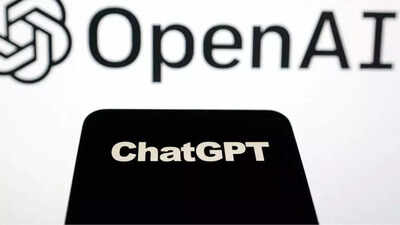ChatGPT advice lands 60-year-old man in hospital; the reason will surprise you |

A 60-year-old man in New York was hospitalised after following a strict salt-reduction regimen suggested by ChatGPT. According to doctors, the man abruptly cut sodium from his diet to nearly zero over several weeks, leading to dangerously low sodium levels, a condition known as hyponatraemia. His family said he relied on an AI-generated health plan without consulting a physician. The case, recently published in the American College of Physicians journal, highlights the risks of applying AI health advice without professional oversight, particularly when it involves essential nutrients like sodium. The man recovered after spending three weeks in hospital.
ChatGPT advice leads to dangerous substitute
According to the report, the man asked ChatGPT how to eliminate sodium chloride (commonly known as table salt) from his diet. The AI tool suggested sodium bromide as an alternative, a compound once used in early 20th-century medicines but now recognised as toxic in large doses. Acting on this advice, the man purchased sodium bromide online and used it in his cooking for three months.With no previous history of mental or physical illness, the man began experiencing hallucinations, paranoia, and extreme thirst. Upon hospital admission, he displayed confusion and even refused water, fearing contamination. Doctors diagnosed him with bromide toxicity, a condition now almost unheard of but once common when bromide was prescribed for anxiety, insomnia, and other ailments. He also exhibited neurological symptoms, acne-like skin eruptions, and distinctive red spots known as cherry angiomas, all classic signs of bromism.Hospital treatment focused on rehydration and restoring electrolyte balance. Over the course of three weeks, the man’s condition gradually improved, and he was discharged once his sodium and chloride levels returned to normal.
AI misinformation risks
The authors of the case study stressed the growing risk of health misinformation from AI tools. “It is important to consider that ChatGPT and other AI systems can generate scientific inaccuracies, cannot critically discuss results, and ultimately fuel the spread of misinformation,” the report warned.OpenAI, ChatGPT’s developer, explicitly states in its Terms of Use: “You should not rely on Output from our Services as a sole source of truth or factual information, or as a substitute for professional advice.” The terms also clarify that the service is not intended for diagnosing or treating medical conditions.
A global conversation about AI responsibility
This case highlights the urgent need for critical thinking when interpreting AI-generated advice, especially in matters involving health. Experts say AI tools can be valuable for general information but should never replace professional consultation. As AI adoption grows, so too does the responsibility to ensure that its outputs are accurate, safe, and clearly understood by the public.





